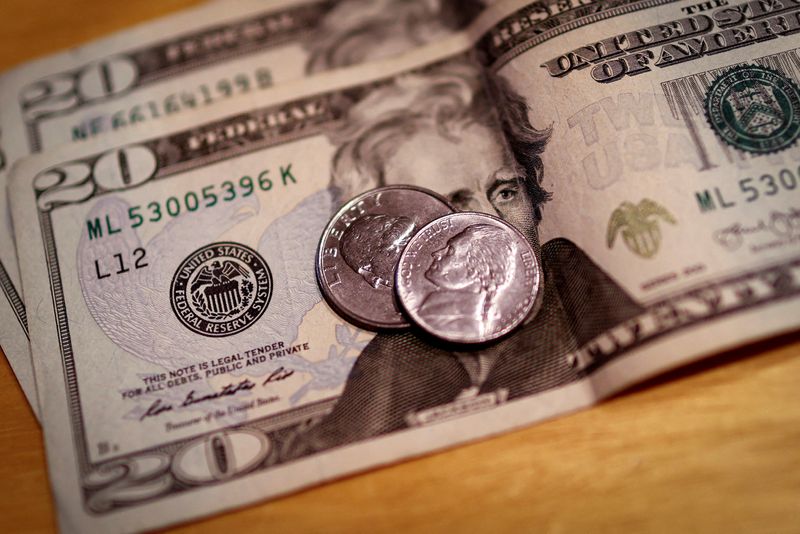By Andrea Shalal
WASHINGTON (Reuters) - The U.S. dollar remains the world's primary reserve currency, and neither the euro nor the so-called BRICS countries have been able to reduce global reliance on the dollar, a new study by the Atlantic Council's GeoEconomics Center shows.
The group's "Dollar Dominance Monitor" said the dollar continued to dominate foreign reserve holdings, trade invoicing, and currency transactions globally and its role as the primary global reserve currency was secure in the near and medium term.
Dollar dominance — the outsized role of the U.S. dollar in the world economy — has been strengthened recently given the robust U.S. economy, tighter monetary policy and heightened geopolitical risks, even as economic fragmentation has strengthened a push by BRICS countries to shift into other international and reserve currencies.
The Atlantic Council report said Western sanctions on Russia imposed by the Group of Seven advanced economies after Moscow's invasion of Ukraine had accelerated efforts by the BRICS countries to develop a currency union, but the group had been unable to make progress on its de-dollarization efforts.
BRICS is an intergovernmental organization made up of Brazil, Russia, India, China, South Africa, Iran, Egypt, Ethiopia, and the United Arab Emirates.
The council said China's Cross-Border Interbank Payment System (CIPS) added 62 direct participants in the 12 months to May 2024, an increase of 78%, bringing the total to 142 direct participants and 1,394 indirect participants.
Negotiations around an intra-BRICS payment system were still in the nascent stages, but bilateral and multilateral agreements within the group could form the basis for a currency exchange platform over time. However, these agreements were not easily scalable, since they were negotiated individually, the report said.
It noted that China has actively supported renminbi liquidity through swap lines with its trade partners, but the share of renminbi in global foreign currency reserves dropped to 2.3% from the peak of 2.8% in 2022.
"This is possibly because of reserve managers’ concern about China’s economy, Beijing’s position on the Russia-Ukraine war, and a potential Chinese invasion of Taiwan contributing to the perception of the renminbi as a geopolitically risky reserve currency," the report said.

The euro, once considered a competitor to the dollar's international role, was also weakening as an alternative currency, with those looking to reduce their risk exposure turning to gold instead, the report said.
It said Russian sanctions had made it clear to reserve managers that the euro was exposed to similar geopolitical risks as the dollar. Concerns around macroeconomic stability, fiscal consolidation, and the lack of a European capital markets union also hurt the euro’s international role, it said.